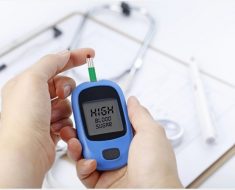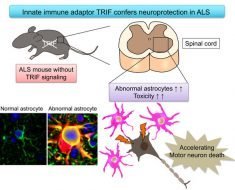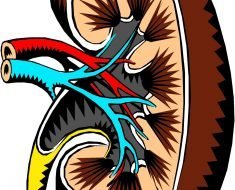A deadly Ebola outbreak in the Democratic Republic of Congo has a clear “potential to expand”, the World Health Organization warned Wednesday, saying it aimed to vaccinate 10,000 people within a month.
“We are on the epidemiological knife edge,” Peter Salama, in charge of emergency response at the WHO, told a special meeting on the outbreak that has killed 27 people.
“It could go either way over the next few weeks and we are working around the clock to make sure it (goes) in the right direction,” he told AFP after the meeting.
The agency issued a new toll, saying there had been 58 cases since early April—an increase of seven over figures issued on Tuesday—and said it was actively following more than 600 contacts.
Ebola, a virus-caused haemorrhagic fever that spreads through contact with bodily fluids, is both highly infectious and extremely lethal.
The current outbreak, which was officially declared on May 8, began in rural northwestern DRC in a remote location called Bikoro.
Last Thursday, the first case was reported in Mbandaka—a city of around 1.2 million people that lies on the Congo River, acting as a transport hub to Brazzaville and Kinshasa downstream and to Bangui, upstream.
‘Can spread quickly’
So far, seven cases have surfaced in Mbandaka districts, WHO said.
“An urban case means that it can spread quickly,” WHO chief Tedros Adhanom Ghebreyesus told Wednesday’s session during the agency’s annual World Health Assembly.
The proximity of the outbreak to neighbouring countries, especially through the river connection, was a major concern, he said.
“They are connected, they are very close, and … that makes the problem really serious,” he said.
Another concern, Salama said, was that five healthcare workers were among those infected.
“That is a tragedy in its own right, but it also signals the potential for further amplification,” he said.
The top WHO officials who spoke at Wednesday’s event stressed the massive efforts put in place to halt the DRC outbreak.
The UN health agency is eager to show that it has learned hard-won lessons on how to deal with Ebola since the worst-ever outbreak of the virus, which killed more than 11,300 people in three West African countries from 2013-2015.
WHO faced harsh criticism for responding too slowly and failing to grasp the gravity of that outbreak until it was out of control.
Matshidiso Moeti, WHO’s regional director for Africa, told AFP she was “very confident” that the UN health agency had learned from “the very painful lessons” it received in West Africa.
“I note with a lot of satisfaction that it was possible to get moving very quickly,” she said, acknowledging though that she remained “greatly concerned” about the outbreak.
She said WHO among other things was “working very hard” with the nine surrounding countries to ensure they are sufficiently prepared in case the virus spreads beyond DRC.
‘Not a silver bullet’
A vaccination campaign, using an as yet unlicenced vaccine, also got underway this week.
The campaign is beginning with first responders, and will soon move to anyone known to have been in contact with suspected cases, and then on to the contacts of the contacts.
“This is not mass immunisation, this is highly targeted ring vaccination,” Salama said, pointing out that the aim was to form “protective rings around (each) case to protect the people themselves, but also to prevent further community transmission.”
He said some 10,000 people should be vaccinated within the next month.
Salama stressed though that the vaccine is “not a silver bullet”, insisting it “is really the detective work of epidemiology that will make or break the response.”
Only by finding every single Ebola case, and mapping and following every one of their contacts, and ensuring that the sick are isolated, can the epidemic be brought to halt, he said.
Source: Read Full Article





